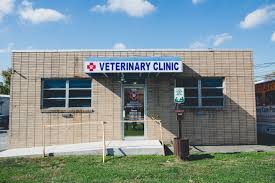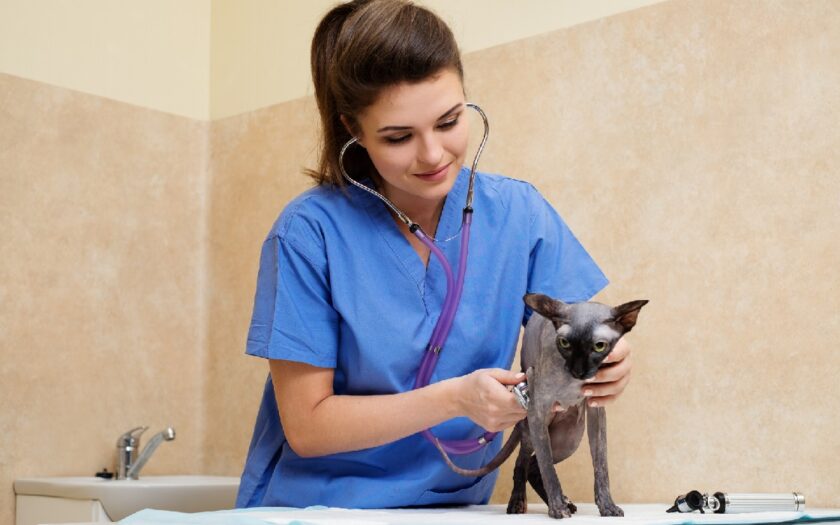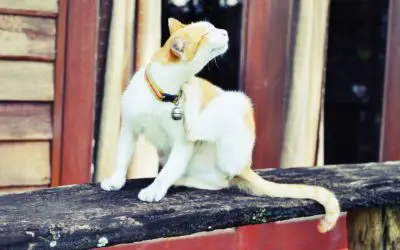A lot of people don’t put much thought into their cat’s vet, but it’s actually a very important choice. Just like choosing pet insurance, cat towers, and litter trays, you need to know what to look for when you’re finding a new vet for your cat. Whether you’ve got your first kitten, or your favorite vet has closed, it’s essential that you and your vet trust one another and can work together to look after your pet.
The Vet-Owner-Pet Relationship
The ideal relationship between vet and pet owner is built on trust. You need to trust that your pet is in good hands, that your vet will do what they can for them, and that their prices are fair. In return, your vet needs to trust that you’ll tell the truth about your pet, that you’ll monitor their health, that you’ll come in when you’re worried, and that you’ll give medications as prescribed.
Once there is a breakdown of trust in this relationship, it’s not always repairable. For instance, if you feel that your vet didn’t listen to your concerns, you might worry their diagnosis is incorrect. You won’t give the medication properly, so your vet will think you didn’t listen to them, and in turn your cat will not get better- leaving you both frustrated. Often, this relationship can be repaired- have a quiet word with your vet, or write a letter stating your concerns. If, however, you feel you cannot get that trust back, it’s time to move on.
Recommendations from friends and family
Whilst a recommendation is a really powerful thing, it’s important to remember that you and your family member might have different needs in a vet.
It’s ok to try a vet recommended by a friend, but don’t feel you have to use them- if there’s something you aren’t happy with or comfortable with- even if it’s as small a thing as a ‘personality clash’, it’s ok to move on.

Consider what sort of care you want
Just like parenting, pet parenting brings out a range of different methods, and the ways that you look after your pets can vary hugely compared to your neighbors. Some owners want different things in their vets, and you’ll want to find a vet that suits your pet-parenting style. Here are some things to consider:
- Do you want a vet that will keep things cheap and cheerful, or someone who will run every test in the book to make sure nothing is going on?
- Decide if you like a vet who tells you exactly what to do, or someone who explains all the options and lets you choose?
- Do you feel comfortable with someone with a warm bedside manner, or do you prefer someone who tells you exactly what they think instead?
- Do you want only the best, most modern medicine, or do you want a vet who understands your interest in herbal medicine and holistic treatments?
You and your vet aren’t necessarily going to agree on everything, but finding a vet that suits your pet-parenting style is important for a harmonious relationship.

How to find a good veterinarian: 5 tips
As we’ve said, the most important thing in a vet-owner relationship is mutual trust. But, since trust is usually built over time from many minor things, how can you tell whether a vet is worth a try?
- Search for local vets
You’ll want your vet to be close in case of an emergency. Search for vets that are a maximum of an hour away, ideally less. If you don’t have your own transport, you’ll want to look for vet clinics on a public transport route.
- Narrow down the list by services
Some of the vets on your list will only deal with horses, or cattle- you can disregard these. Not all practices offer an in-house emergency service- there are pros and cons to this, and you may find that you disregard some vets that send you further afield for their out-of-hours service.
- Focus on facilities
Look for a practice that is cat-friendly; you may be lucky enough to live near a feline-only clinic, but if not, you can look for awards such as the ISFM award. This is an optional award that practices can choose to enter themselves for- they have to meet strict criteria to prove feline-friendly techniques, equipment and facilities before gaining the awards.
Also look at the clinic facilities- if they are a small branch practice, they may not have basic equipment for surgery, instead asking you to travel to the main practice for operations or x-rays. Again, whilst this isn’t necessarily bad, it’s important that you know what facilities are available to you.
- Visit the clinics
Once you’ve reduced the list to just a couple of likely candidates, it’s a good idea to pop by. You may find that parking is too difficult, or that it’s very busy and noisy. Make allowances for emergencies, but you’re looking for a quiet practice with a separate waiting area for your cat, so they don’t get stressed. The reception staff should be pleased to see you, and able to give you information about their services and prices.
You may even find that you can have a tour- but don’t be upset if the answer is no, especially at short notice- aggressive dogs, x-ray radiation, and anesthetic gasses can make vet clinics dangerous places to be.
- Book a consultation
Many clinics will offer a free ‘meet and greet’ consultation so they can meet you and your cat. This is a risk-free way for you to try out a new clinic before deciding to move there for good. Use the opportunity to talk to the vet. Whilst this isn’t an ‘interview’, it’s a chance for you to see if you like the clinic’s protocols and feel, and whether you get on with the veterinarian.
Relationship heading south? 3 warning signs your relationship with your pet’s vet isn’t as healthy as it should be
1. You ask for more information on social media
If you come out of a consultation and find yourself confused or unsure, it’s tempting to reach for social media to see what everybody else thinks. The problem is, even vets on social media aren’t able to see exactly what your vet has seen- so they can’t diagnose or advise. And if the vets can’t, your friends and family definitely can’t. If you find yourself doubting what your vet said, or wanting more information, it’s possible you don’t trust your vet enough.
2. You’re scared to call your vet for help
I’m not saying you should call your vet every day, or when there’s nothing wrong, or too often. But if you’re scared to call your vet to ask a question or book an appointment, it’s possible your relationship isn’t as healthy as it should be. It may be that you feel embarrassed to ask a question, or it may be that you feel you’re making a nuisance of yourself- either way, it’s important you’re able to ask a question when you need to.
3. You worry your vet is selling you things you don’t need
Let’s just get this out there: the vast majority of vets will never recommend something they wouldn’t use on their own pets. Most vets are not on commission and make nothing extra no matter which food, medication, or preventatives you put your pet on. Which means if you’re worrying that they’re selling you things just to bump up the price, it’s time to have a good look at your relationship. It sounds like you aren’t trusting your vet, and it might be time to have a look at why.
Conclusion
Your cat’s health depends on your relationship with their vet. A healthy relationship, with mutual respect and trust, makes for a healthier, happier cat. Lastly, please do remember to keep things civil with your vets- vets suffer from a suicide rate of 3-4 times the average, and online slandering (termed ‘vet bashing’) doesn’t help matters. If you have a problem with your vet or clinic, ask for the clinic’s complaint procedure, or write a letter. Conversely, if you have a good relationship with your vet- please thank them, and leave a nice review! It can make their day- and even save their life.






You made a good point that an up-to-date practice is important to consider when looking for a veterinarian. I’m thinking about looking for one soon because my dog hasn’t been eating lately. I’m not quite sure why she is doing that because she doesn’t even seem like she is sick.
I like how you said to find a vet that lives close in case of an emergency. My sister recently got a kitten for her family a couple of weeks ago, and she was telling me about how she is needing to look into finding the right vet for the cat to see. I’ll make sure to pass these tips along to her as she searches for a vet for her kitten to see!
Hi Kate,
we’re glad to hear you found the article useful! 🙂